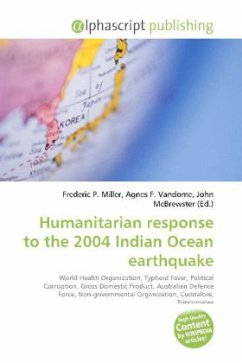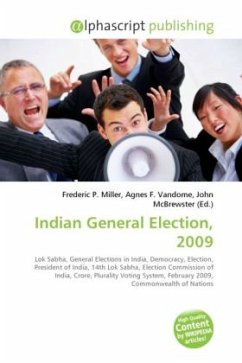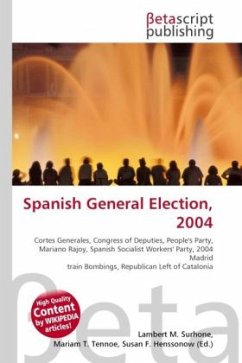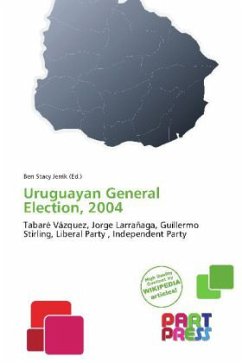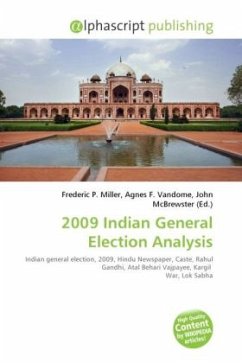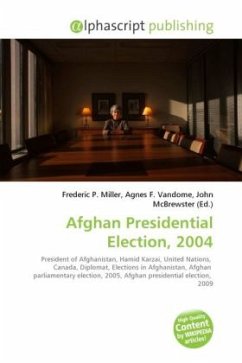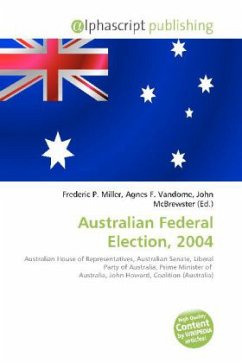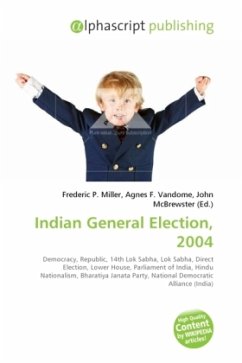
Indian General Election, 2004
Versandkostenfrei!
Versandfertig in 6-10 Tagen
36,99 €
inkl. MwSt.

PAYBACK Punkte
18 °P sammeln!
Legislative elections were held in India, the world's largest democracy and a Republic, in four phases between April 20 and May 10,2004. Over 670 million people were eligible to vote, electing 543 members of the 14th Lok Sabha. The Lok Sabha, or "House of the People," is the directly elected lower house of the Parliament of India). On May 13, the ruling Hindu nationalist Bharatiya Janata Party and its alliance National Democratic Alliance conceded defeat. The Indian National Congress was able to put together a comfortable majority of more than 335 members out of 543 with the help of its allies...
Legislative elections were held in India, the world's largest democracy and a Republic, in four phases between April 20 and May 10,2004. Over 670 million people were eligible to vote, electing 543 members of the 14th Lok Sabha. The Lok Sabha, or "House of the People," is the directly elected lower house of the Parliament of India). On May 13, the ruling Hindu nationalist Bharatiya Janata Party and its alliance National Democratic Alliance conceded defeat. The Indian National Congress was able to put together a comfortable majority of more than 335 members out of 543 with the help of its allies under the direction of Indian National Congress. The 335 members included both the Congress-led United Progressive Alliance, the governing coalition formed after the election, as well as external support from the Bahujan Samaj Party (BSP), Samajwadi Party (SP), Kerala Congress (KC) and the Left Front. (External support is support from parties that are not part of the governing coalition). Congress President Sonia Gandhi surprised observers by declining to become the new prime minister, instead asking former Finance Minister Manmohan Singh, a respected economist, to head the new government.



